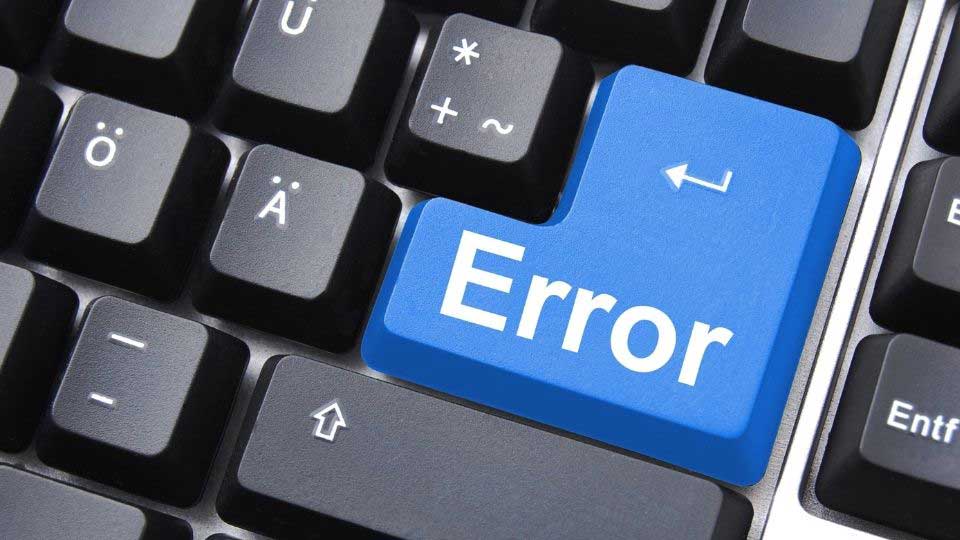
The potential magnitude of translation errors


In 2004, four people died of massive radiation overdose in a hospital in France. The problem was not one of wrong diagnosis or equipment malfunction: it was one of translation! The instruction manual that came with the software that calculated the right dosage was in English. Instead of hiring a professional translator to deal with the issue, so-called “multilingual” staff at the hospital decided to tackle the task themselves. The result was catastrophic, and it is very likely that the hospital in question has never truly recovered from the financial and reputation – if at all they continued to operate after that fiasco.
The COPQ of Translation
Poor quality is often a measure of money that a company loses, and it is termed Cost of Poor Quality, or COPQ. The average COPQ for a business has been calculated at a minimum of 25% of operating cost; that figure goes up to 40% in some cases; in extreme instances, it can cause the bankruptcy and subsequent liquidation of a business. While the bulk of this poor quality comes from the product or service itself, a significant amount of business takes a hit because of translation issues.
In 2009, the World Baseball Classic organisers sent a courtesy translation of the English rules to the Cuban team. The abstract stated that the pitch limit for a reliever to be able to play the next day was 30 pitches. The translation, however, changed ’30 or more’ into ‘more than 30’. On the day prior to the game against Mexico, the Cuban Team Manager pulled out two relievers after they had pitched 30 balls against the Japanese team, hoping to reserve them for the important game the next day. Three hours before the game against Mexico, he was informed that his two relievers could not, in fact, pitch that day. Fortunately, Cuba still won the game 7-4 and decided not to contest the decision. The details are unimportant in this context, but it goes to show how critical accurate translation really is and what the cost of poor translation might prove to be.
Cultural Nuances
Translation does not always deal with words alone. In certain cases, ideologies may be transmitted offensively. Take the example of Camay soap from Proctor and Gamble. When P&G wanted to market its product in Japan, it used the same storyline as the advertisement for the U.S. market – a man watching his wife in the bathroom while she used the product. In Japan, however, this was an extremely offensive advertisement because men and woman sharing a bathroom at the same time is taboo. The simple act of checking with a person familiar with Japanese culture could have avoided the company the entire cost of the campaign being scrapped. In addition, it would have saved a tremendous amount of PR damage because of the negative impact of the advertisement. In this particular case, no words were involved; however, the cost of poor quality was tremendous.
A similar instance occurred with Braniff Airlines, when they discovered that their new campaign for plush leather seats in first class – “Fly in Leather” – translated into “Fly Naked” in Spanish. “In Leather” is not the best of phrases when translated into another language, and advertisement executives should have caught that before it turned into a marketing disaster.
Though verbal and non-verbal blunders may happen due to vastly different reasons, the underlying error is still the same – the inability to effectively transmit ideas from one culture to another. The only solution to this problem is to use expert translators or people who are natives of the target nation who also understand the source language at a near-native level. Unless a person is equally familiar with both the cultures and languages in question, it can lead to dire consequences.
Why Expert Translation is Critical to Businesses
In conclusion, here is an extreme case of a person becoming a quadriplegic because of one mistranslated word – intoxicado. This Spanish word was uttered by an 18-year-old boy before he collapsed. His girlfriend – who didn’t speak English very well – mentioned the word to paramedics, who immediately assumed that it meant ‘intoxicated;’ subsequently, he went into a coma while being ‘worked up’ for drug abuse. The word ‘intoxicado’, in this instance, actually meant ‘nauseous’, but the treatment based on a wrong translation ended up in a successful lawsuit that cost the Florida healthcare provider a whopping $71 million for one malpractice settlement! A professional interpreter would have cost a lot less.
That is the true cost of poor translation quality. If you value your business or commercial endeavour, then be sure to use qualified translators and interpreters any time you deal with a culture or language different from your own. The minor cost of translation can help avoid the major cost of redress.



2 Comments
Great post! It is so important to keep hammering this point home in a world where the predominant message right now is that machine translation and amateur translations can do the job just as well.
Hi Marie, thank you for stopping by and for your comment. Yes, we should keep spreading the right message. Fortunately, there are clients who understand the importance of professional translation. Unfortunately, like you said, there are some who don’t.